Automotive Hail Repair
Understanding Hail Repair Supplements: Why Estimates Change
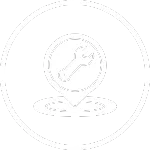
FSDAVCFEBFEVSDDVFSD
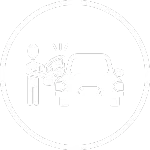
FSDAVCFEBFEVSDDVFSD
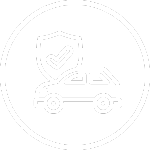
FSDAVCFEBFEVSDDVFSD
Why PDR is Preferred for Hail Damage
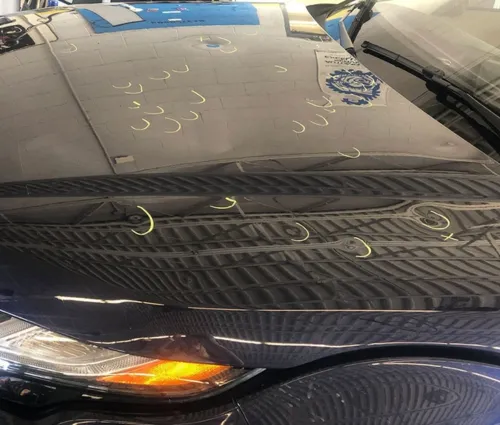
In collision and hail repair, a supplement is an update to your estimate after the team uncovers additional work. During teardown, lighting, or panel access, we may find dents, creases, or parts needs that were impossible to confirm in photos or a quick drive‑in inspection. on first look.
Typical triggers include hidden dents under moldings and beltline trim, the need to remove and install interior panels, aluminum panel surcharges, complex bodylines that require specialized tools, and ADAS calibration after glass or mirror work. These items refine scope, protect quality, and preserve your factory finish and safety.

How Dentex Midwest documents supplements
We build a transparent record for every hail claim. Technicians photograph panels under LED light‑boards to reveal crown tension, lows, and stretch risk. We create panel maps that mark dent counts and sizes, and note bodyline complexity. Digital scans capture ADAS status, battery health, and diagnostic trouble codes before and after repair. Everything is time‑stamped and attributed.
When additional work appears, we add it to the estimate with clear justifications. R&I labor is itemized by panel and fastener type; materials and sublet items are flagged. Aluminum or high‑strength steel panels receive manufacturer‑recommended procedures. Photos, scan reports, and line notes are bundled and submitted to insurers through their preferred portals for faster, cleaner file reviews.
You receive the same evidence we share with the carrier. That means annotated photos, updated line items, and any calibration requirements, so there are no surprises. We’ll also confirm whether the change is PDR only or involves limited bodywork. This clarity helps speed insurance supplement approval and keeps your Dentex Midwest hail estimate predictable through final delivery.

How insurer approvals usually flow
Once a supplement is submitted, the insurer assigns or notifies an appraiser, who reviews the documentation and may request a quick re‑inspection or virtual call. Because our file includes photos, scans, and notes, many approvals occur without a physical visit. Typical review windows range from same day to two business days, depending on carrier workload. Complex claims can take a bit longer occasionally.
You can help by answering your phone, keeping your claim number handy, and pre‑authorizing communication via text or email. If the insurer needs you to confirm details, quick replies prevent stalls. We’ll update you on any schedule impact and coordinate calibrations in advance, so when approval arrives, parts, tooling, and bays are ready to keep repairs moving with minimal delays or surprises later.

When a supplement is approved, your out‑of‑pocket usually doesn’t change. Most hail claims are covered to the policy limits, and the deductible stays the same whether the estimate is higher or lower. What does change is the amount your insurer authorizes us to perform, including extra R&I, calibration, or parts. We confirm these updates with you before proceeding, so your estimate changed after inspection never becomes a budget surprise for you or insurance.
Because hail repair leans on PDR, supplements often reflect labor hours rather than cosmetic materials. However, some panels may require limited refinish when paint is cracked or metal is overstretched. Aluminum panels can add manufacturer‑specific surcharges, and structural adhesives or rivets may be required on certain vehicles. We outline the why behind each line, so the scope stays understandable and aligned to safe, factory‑correct repair methods approved by carriers before work proceeds fully.
Example: initial vs. final estimate
Initial visit: A 2021 SUV arrives with roof, hood, and left‑side dings after a spring storm. Quick lights and photos suggest 200 dents, mostly nickel‑size, all PDR. Initial estimate: $3,100 with a two‑day cycle. Once we remove the headliner and belt moldings, we discover extra roof bracing access time and deeper bodyline hits on the left quarter.
Supplement: +3.0 hours R&I for trim and bracing, +1.0 hour for aluminum hood complexity, and one small refinish on a cracked mirror cap. Documentation includes light‑board photos, panel maps, and pre/post scans. Submitted same day; insurer approves next morning. Final estimate: $3,780. Customer deductible remains $500; no change to out‑of‑pocket responsibility. Rental coverage continues as originally planned.
Cycle time: The supplement adds one business day for access and calibration at a partner facility. Because approvals arrived quickly, parts and bay time were reserved in advance, minimizing downtime. Total time from drop‑off to delivery: three days. Result: factory finish preserved, clean scan reports, and a vehicle returned to pre‑storm condition without unnecessary repainting or filler.
What can delay an approval?
Missing documentation, unclear photos, or estimates without line notes can slow reviews. If a carrier can’t see why an item is needed, they’ll request proof. Our submission anticipates questions, mapping dents, listing R&I by panel, and attaching scan results.
Access challenges can delay work: seized fasteners, aftermarket accessories, or clips take time to remove safely. Weather, parts availability, and ADAS calibration scheduling influence timelines. We flag factors so you know which we control and which depend on partners.
Delayed customer responses can also extend approvals. If the carrier needs confirmation, mileage, or photos, unanswered messages stop the clock. The fastest path is simple: stay reachable, keep your claim number handy, and approve updates when you feel comfortable.


Bottom line: supplements are not surprises—they’re a normal, transparent part of professional hail repair. They capture hidden work discovered once panels are safely accessed and ensure your vehicle is restored correctly. Dentex Midwest documents every addition with photos, maps, and scans, submits them promptly to insurers, and communicates approvals in plain language. That’s how we keep your factory finish intact, cycle times tight, and your Missouri PDR supplement experience straightforward from estimate to final delivery.
How you can help us move faster
Be reachable during business hours. If we call or text with a quick confirmation, a yes or no keeps the file moving. Keep your claim number, policy details, and adjuster information handy. When you drop off, remove roof racks and personal items from the cabin and cargo areas so we can access trim promptly. Provide both sets of keys; some calibrations require ignition cycles and window relearns after battery disconnect.
Let us know your preferred communication method and pre‑authorize digital signatures if your carrier supports them. Many insurers now accept annotated photos and scan reports in place of in‑person re‑inspections; pre‑consent reduces bottlenecks. Share any coverage details that might impact scheduling—rental limits, storage limits, or time‑sensitive travel. With clear boundaries, we’ll plan bay time and calibration appointments to match approvals, protecting your schedule while keeping work aligned with carrier requirements.
Finally, tell us about any aftermarket parts or previous repairs. If a roof rack mount is loose, or a windshield was recently replaced, that information prevents rework and clarifies who covers what. Sending clear photos—panel by panel, straight on, in shade—also improves pre‑checks. Together, these small steps can shave hours from insurance supplement approval and help Dentex Midwest return your vehicle faster without compromising factory‑correct quality and long‑term finish durability.
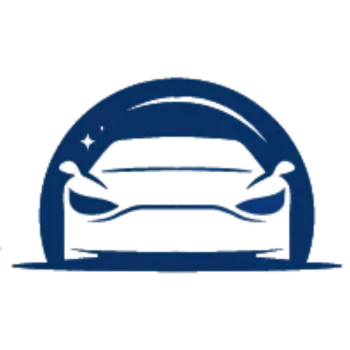
Dentex Midwest
Professional Hail Repair & PDR
Stay Up-to-date With Our Content
Subscribe to learn more about our mission!
Stay Up-to-date With Our Content
Subscribe to learn more!
Contact Info
Service Hours
Social Media
Home
Services
Service Areas
Blog
About
Contact
Contact Info
Service Hours
Mon - Fri: 8:00 am – 6:00 pm
Saturday: by Appointment
Sunday: Closed
Social Media

Licensed, bonded, & insured